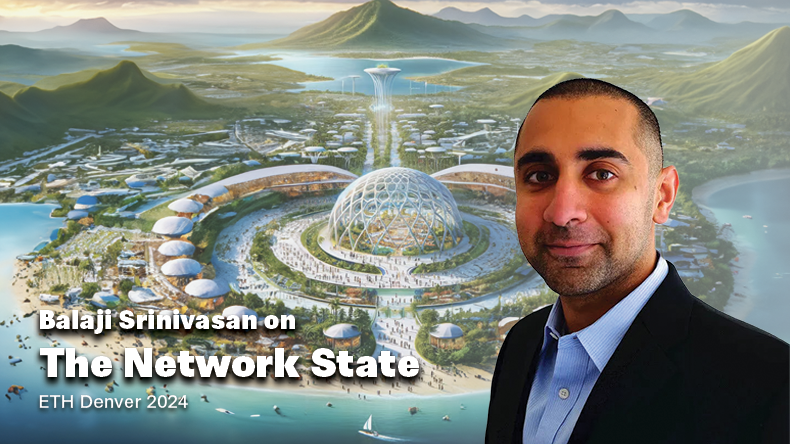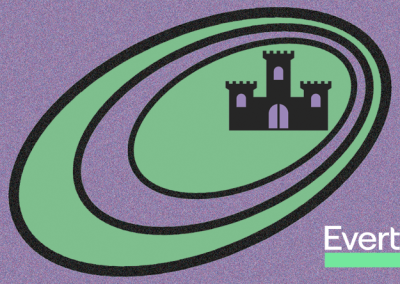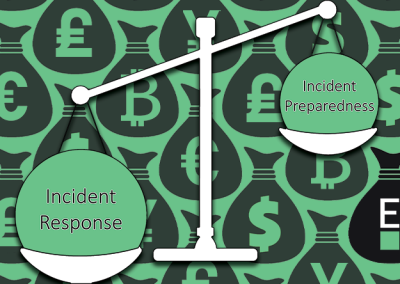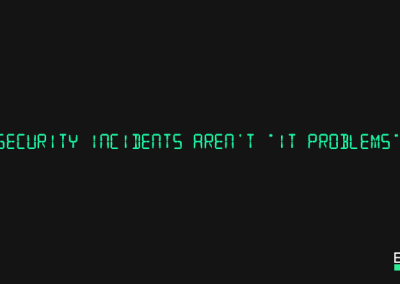Evertas’ CSO, Ryan Lackey, hosted a side event at ETH Denver 2024, “The Network State, Radical Life Extension and Futuristic Cities.” Balaji Srinivasan, former CTO of Coinbase and General Partner at Andreessen Horowitz, angel investor, tech founder, and WSJ bestselling author of The Network State, joined the event by Zoom.
Balaji’s Network State is a powerful meme that aims to bring on-chain innovation on-land. Officially, “A network state is a social network with a moral innovation, a sense of national consciousness, a recognized founder, a capacity for collective action, an in-person level of civility, an integrated cryptocurrency, a consensual government limited by a social smart contract, an archipelago of crowdfunded physical territories, a virtual capital, and an on-chain census that proves a large enough population, income, and real estate footprint to attain a measure of diplomatic recognition.”
The event assembled thought leaders Niklas Anzinger (Vitalia), Gary Sheng (Edge City), and Ryan Lackey (Evertas), to explore the possibilities of bringing the same type of innovation seen in information technology broadly for the past 30+ years to the physical world.
Balaji’s talk opened the event. Here are some takeaways, and the video of the full address is embedded below.
What is the Network State?
Just as Bitcoin and other crypto are decentralized currencies, a Network State is a decentralized country. In the Network State, individuals are part of a global community connected through nodes, stakers, miners, etc., similar to the cooperation seen on the blockchain. To illustrate this concept, Balaji described a scenario in which all of the physical “Little Tokyo” communities around the world were connected by shared rules of community and digital communications to act as a decentralized country—connected, but not exclusively by physical proximity.
How are Network States governed?
Network States are governed by the consent of participants, similar to other private institutions [such as Homeowners Associations (HOAs), membership clubs, sports teams, and online software projects]. Network States do not depend on being geographically contiguous or having a geographic monopoly on territory, but operate under agreed rules, values, and decision-making processes by participants. There are a wide variety of potential network states with different purposes and systems of government.
What prevents the Network State from becoming a totalitarian state?
In the “fractal frontier,” each community member brings different skills to the table. Just as Steve Jobs recognized that his skills were not complete enough to ensure his survival without operating as a social being, members of a Network State would benefit individually from being part of the collective. In addition, in a community that requires signing a social smart contract with the equivalent of an ENS, rule breakers can be locked out of the community’s digital and physical territory as punishment for violating laws.
What’s the state of the Network State?
Right now there are blockchain-based communities crowdfunding physical real estate and organizing pop-up cities or villages, similar to Zuzalu, Vitalik Buterin’s two-month popup in Montenegro. These pop-ups are bridging the gap between the digital communities taking shape and their potential emergence into physical communities with real estate holdings and diplomatic recognition.
How does Evertas think about Network States?
We believe the free and open innovation seen on the Internet and in information technology broadly over the past decades globally has been a major force for good – improving the lives of people around the world, lifting billions out of poverty, and bringing people together in new ways. We think innovation in government and governance, some of the key goals of blockchain technology, are important enablers for Network States, and that institutions like insurers, private ratings agencies, industry information sharing groups, and other alternatives to direct government regulation can often be both more responsive to innovation and more protective of individual rights.
Watch Balaji’s full talk here:




